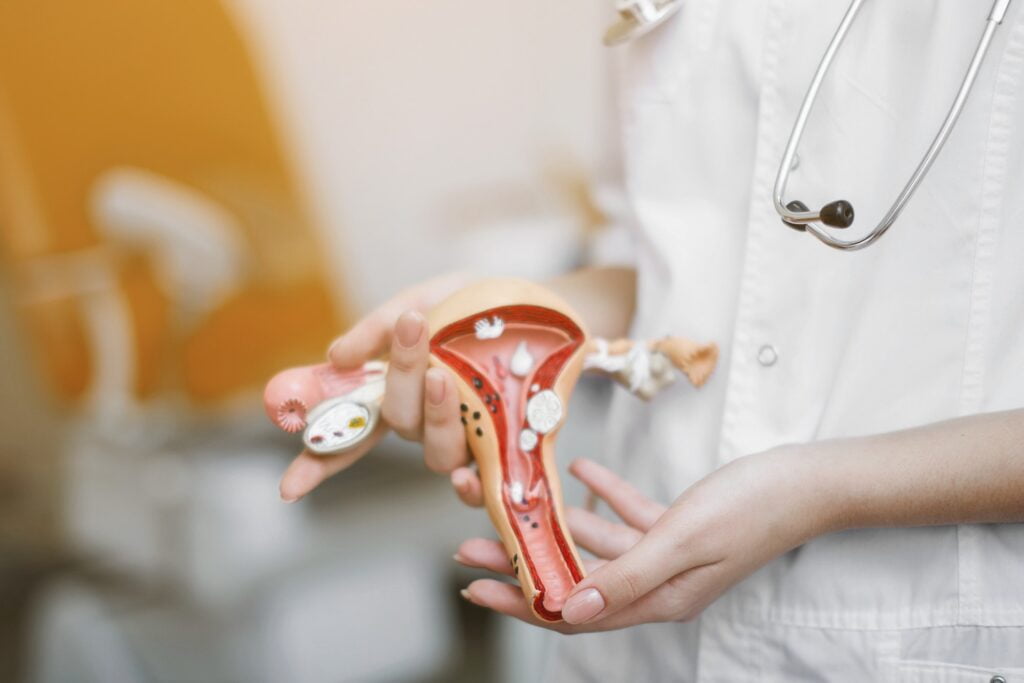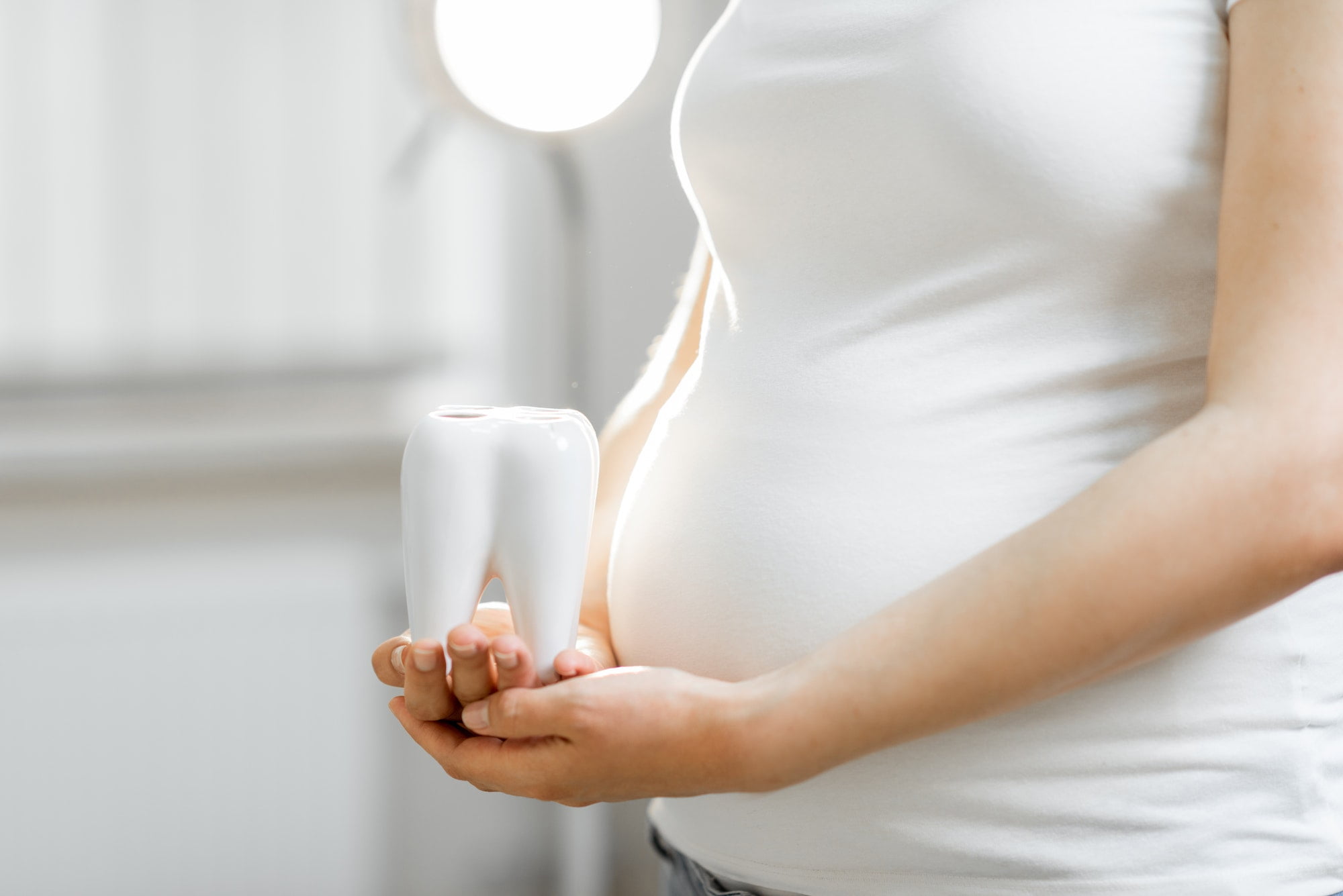Table of Contents
ToggleHey there, folks! Today we’re diving deep into a topic that’s been buzzing around like bees in a garden, and for all you parents out there, it might just be a light bulb moment. We’re talking about “Can You Have a Surrogate After Hysterectomy?” this is quite a heated debate, isn’t it? Yeah, that’s right! No need to rub your eyes or clean your glasses.
But first, let’s put this in layman’s terms for those who are new to the medical lingo. A hysterectomy is a surgical procedure where the uterus, or what you might call the ‘baby house’, is removed. Why? Well, it’s not always rainbows and butterflies. Some folks deal with severe pain, heavy bleeding, or life-threatening conditions like cancer. When everything else fails, a hysterectomy becomes the saving grace.
Now, after a woman has a hysterectomy, she can’t carry a baby. But wait! Before you start throwing in the towel, there’s a silver lining. The big question on the table is, “Can you be a surrogate after a partial hysterectomy?” Well, let’s just say the answer might not be what you expect.
So, are you ready to peel back the layers and reveal the truth? Grab your cup of joe, sit back, and let’s explore this new frontier. Next up, we’ll be understanding surrogacy and all the ins and outs that come with it. Buckle up, because it’s going to be an enlightening ride!
The Pathway to Parenthood After Hysterectomy

Alright, now that we’ve laid down the groundwork, let’s dig a bit deeper into the heart of our topic: surrogacy. In the simplest terms, surrogacy is when another woman, dubbed the ‘surrogate’, agrees to carry and give birth to a baby for someone who can’t do it themselves. We’re talkin’ about a game-changer, folks!
But how does surrogacy work, you ask? Well, it’s not as complex as it sounds. There are typically two kinds: gestational and traditional surrogacy. In gestational surrogacy, an embryo created through in vitro fertilization (IVF), using the intended parents’ eggs and sperm or donors, is transferred into the surrogate’s uterus. In this scenario, the surrogate isn’t genetically related to the baby. She’s kinda like the oven baking the bun, if you catch my drift.
On the flip side, traditional surrogacy is less common and involves the surrogate’s own egg being fertilized with the intended father’s sperm. In this case, the surrogate has a genetic connection to the baby, which can complicate things a bit.
Now, a successful surrogacy journey needs a few key ingredients. First off, the surrogate needs to be physically healthy and mentally prepared for the journey ahead. She’ll need to undergo medical tests and psychological evaluations to ensure she’s up to the task. Additionally, legal contracts are a must to protect the rights and responsibilities of everyone involved.
But hey, surrogacy isn’t just about meeting requirements. It’s about making dreams come true. It’s about creating families. And when traditional pathways to parenthood are blocked, as they are after a hysterectomy, surrogacy opens up a new road. So, are you ready to explore that road and see where it can take you? Let’s keep the ball rolling, folks, as we delve into the journey to parenthood after a hysterectomy. It’s time to uncover the miraculous possibilities that surrogacy offers. So, without further ado, let’s move on!
Can You Be a Surrogate After a Partial Hysterectomy?
Alright, folks, we’re about to take a sharp turn into the land of partial hysterectomies. You might be asking, “What’s a partial hysterectomy?” In the simplest terms, it’s when the main body of the uterus is removed, but the cervix is left intact. Think of it as downsizing the ‘baby house’, but not demolishing it completely.
Now, here’s the million-dollar question: “Can you be a surrogate after a partial hysterectomy?” Well, here’s the straight scoop. Medically speaking, to carry a pregnancy, you need a fully functioning uterus, and after a partial hysterectomy, well, you’re running on half the equipment. So, as much as we wish it could be otherwise, becoming a surrogate post-partial hysterectomy isn’t typically on the cards. It’s a bummer, but sometimes, the dice just roll that way.
But, here’s the good news, and you’re gonna want to stick around for this one. Even if you can’t be the surrogate, that doesn’t mean you can’t still have a child through surrogacy! A surrogate can step in and carry the baby for you. Ain’t that a breath of fresh air?
So, even though the road might take a few unexpected twists and turns, there’s still a path forward. Parenthood can still be a part of your journey. And speaking of paths forward, let’s move on and discuss an exciting medical advancement you might’ve heard of – uterus transplant after hysterectomy. Trust me, you’re not going to want to miss this!
The Option of Uterus Transplant After Hysterectomy
Are you ready for this? ‘Cause we’re stepping into the realm of cutting-edge science here. Have you ever asked yourself, “Can you get a uterus transplant after hysterectomy?” Well, grab your lab coats and buckle up, because we’re about to dive into that very topic.
Uterus transplants, folks, are just as they sound – they involve transplanting a healthy uterus into a person who doesn’t have one. This is pretty groundbreaking stuff, right? It’s like something straight out of a sci-fi movie, but it’s happening right here, right now. Imagine a future where a hysterectomy doesn’t necessarily mean the end of carrying a child. It’s mind-blowing!
But, before we get too excited, it’s crucial to remember that uterus transplants are still pretty new to the medical scene. They’re complex, and they come with their fair share of risks. Plus, they’re not always successful. It’s kind of like climbing Mount Everest – possible, but definitely not a walk in the park.
So, does this mean you can get a uterus transplant after a hysterectomy? Technically, yes. But it’s a big decision that should be made with all the facts in hand. Speaking of which, let’s roll up our sleeves and dive deeper into the comparison of surrogacy and uterus transplants, looking at the pros and cons of each. Ready to continue this enlightening journey? Then, let’s move on!
Surrogacy vs Uterus Transplant: Pros and Cons

Let’s hit the ground running, folks. We’ve been juggling two major options for having a baby after a hysterectomy: surrogacy and uterus transplants. They’re like two roads diverging in a yellow wood and, like Robert Frost, we’ve gotta choose our path. So, let’s size ’em up, shall we?
Starting with surrogacy. Now, this method has been tried and true for years. The upside? You’ve got a beautiful soul willing to carry your biological child for you. There’s no surgery needed for you, and the success rates are pretty high. You’re involved every step of the way, from pregnancy to birth, which is an emotional ride worth every penny.
But it ain’t all sunshine and rainbows. Surrogacy can be expensive, and the legal side of things can be as complex as a Rubik’s cube. Plus, you’re placing a whole lot of trust in another person to take care of their health and your future bundle of joy.
Switching gears to uterus transplants, these bad boys are the new kids on the block. It’s exciting, right? It offers the chance to experience pregnancy and give birth. It’s like reclaiming a part of the journey that was thought to be lost.
But hold your horses. This ain’t a cakewalk. Uterus transplants involve major surgery and all the risks that come with it. Plus, the uterus has to come from somewhere, which means you need a donor. And let’s not forget the fact that it’s still an emerging field, which means it’s expensive and not always successful.
So, there you have it. Both surrogacy and uterus transplants have their pros and cons. It’s like choosing between apple pie and chocolate cake – both are great, but the best one for you depends on your taste, or in this case, your personal circumstances.
Next up, we’re going to tackle the big question on everyone’s lips: “Can you carry a baby after a hysterectomy?” Stay with us, because this is going to get interesting. Let’s move on, shall we?
Can You Carry a Baby After a Hysterectomy?
Alright, we’ve danced around the issue a little bit, so let’s cut to the chase: can you carry a baby after a hysterectomy? The hard and fast truth? No, not in the traditional sense. When you’ve had a hysterectomy, your uterus, the home where a baby grows and develops, is no longer in the picture. So the whole carrying a baby part? That’s off the table. And we know, that can be a tough pill to swallow.
Believe us, we get it. The dream of feeling a baby kick or experiencing those nine months of anticipation is something many folks hold dear. It’s not just about having a baby, but about the journey of becoming a mom in every sense of the word. Having that stripped away? It can feel like you’ve been robbed. And that’s okay to admit. It’s okay to mourn that loss. It’s okay to feel like a piece of your puzzle is missing.
But remember, just because you can’t carry a baby doesn’t mean you can’t have a baby. We live in a world where miracles happen every day, and motherhood can come in many forms. We’ve already talked about surrogacy and uterus transplants, two options that can still open the door to a little bundle of joy.
But before we dive into a puddle of tears, let’s flip the script. Life has a funny way of throwing us curveballs, and sometimes, they lead us down paths we never expected. Paths that could lead to amazing stories of hope and perseverance. You got it, folks! We’re about to share some real-life tales of folks who’ve walked in your shoes and come out the other side with joy in their hearts and babies in their arms.
So, grab your tissues and put on your cheering hats. Let’s move on to the inspiring success stories of surrogacy after a hysterectomy.
Success Stories: Real Experiences of Surrogacy After Hysterectomy
It’s easy to get caught up in the medical jargon, the possibilities, and the what-ifs. But sometimes, the most comforting words come not from professionals or even articles like this one, but from real people who have walked the path you’re on. People who know the struggles and the triumphs, the tears and the joy. So, let’s take a minute to share a few stories of those who’ve navigated surrogacy after a hysterectomy.
First up, we’ve got Lisa and Tom from sunny California. After Lisa had an emergency hysterectomy, they were devastated at the thought of not being able to grow their family. Enter Amanda, a close friend, who stepped up to the plate to become their surrogate. Today, Lisa and Tom are the proud parents of a bubbly two-year-old, all thanks to Amanda’s selfless act.
Then there’s Sarah from Texas, a single mom who never thought she’d have a biological child after her hysterectomy due to cancer. But with the help of a surrogacy agency and an incredibly compassionate surrogate, she welcomed her baby boy into the world last spring. Sarah’s story is a testament to the fact that it doesn’t matter how your family comes to be, love is what makes it whole.
These stories are just the tip of the iceberg. For every hurdle, there’s a victory. For every tear, there’s a smile waiting on the other side. These brave folks show us that even when the journey to parenthood seems impossible, there are paths that can lead to the same destination.
We hope these stories have stirred up a bit of hope in your heart. But, we also understand that you may still have a few questions swirling around in your mind. That’s why we’re going to answer the most commonly asked questions about surrogacy after hysterectomy in the next section. Let’s continue this journey together. Stay tuned, you don’t want to miss it!
Frequently Asked Questions about Surrogacy After Hysterectomy
Alright folks, we’ve covered a lot of ground in this conversation about surrogacy after hysterectomy. We’ve navigated through medical terms, discussed various options, and celebrated real-life stories of surrogacy triumphs. But we know you’ve probably still got a bunch of questions racing through your mind. So let’s dive into some of the most frequently asked questions about surrogacy post-hysterectomy.
What is surrogacy?
Surrogacy is a process where another person, often referred to as a surrogate, carries and gives birth to a baby for a couple or individual who can’t conceive or carry a pregnancy.
Can you have a surrogate after a hysterectomy?
Absolutely! If you’ve had a hysterectomy, surrogacy could be an excellent way to grow your family. The key factor is that you’ll need to use either a donor egg or previously frozen embryos, since the ovaries are typically removed during a hysterectomy.
Can you be a surrogate after a partial hysterectomy?
This one’s a bit tricky. While a partial hysterectomy might leave the uterus intact, each case is unique. It’s important to discuss this with a healthcare provider who can consider your personal health and risks.
Can you get a uterus transplant after a hysterectomy?
Yes, uterus transplants are a developing area of medicine and have been successful in some cases. However, it’s a complex and risky procedure, and not widely available. Most folks opt for surrogacy as a safer and more accessible route to parenthood.
Can you carry a baby after a hysterectomy?
In the traditional sense, no. A hysterectomy involves the removal of the uterus, making natural pregnancy impossible. However, if you’re referring to having a biological child, that’s still possible with the help of a surrogate or through a uterus transplant.
Alrighty then, we hope that answers some of your burning questions! This conversation isn’t an easy one, but remember that it’s okay to ask questions, seek advice, and reach out for support. Now, as we wrap this up, let’s reflect on all we’ve discussed and move towards the conclusion. Don’t worry, we’ll make sure it’s a grand finale, worth the read. Hang tight!
Conclusion: Can You Have a Surrogate After Hysterectomy?
Okay folks, we’ve trekked a winding path together through the intricate labyrinth of surrogacy post-hysterectomy. We’ve tackled the nitty-gritty, unraveled medical jargon, and busted some myths. If you were feeling all at sea at the start, we hope you’re feeling more steady on your feet now.
Remember, having a hysterectomy doesn’t spell the end of your parenthood dreams. The good ol’ saying, “where there’s a will, there’s a way” rings true here. Surrogacy is a bright beacon of hope, giving many individuals and couples a chance to grow their family tree.
As we have seen, the surrogacy route is a heck of a journey but with a wonderful destination, creating a life-long bond with your little one. If you’ve had a partial hysterectomy, it’s not entirely off the table for you to become a surrogate, but it’s crucial to hash out the details with your doc.
The concept of uterus transplant sounds like a page straight out of a sci-fi book, but it’s a real and evolving field in medicine, albeit still in its early stages. Lastly, the question “Can you carry a baby after a hysterectomy?” is a hard no in the traditional sense. But with surrogacy or a uterus transplant, you can still have a biological child.
But hey, don’t take our word as gospel – we’ve shared a couple of real-life success stories of surrogacy victories post-hysterectomy. These stories are more than just heartwarming; they’re a testament to the sheer possibility and profound joy that surrogacy can bring.
In the end, the path you choose will be unique to your circumstances, hopes, and dreams. It may not be the journey you expected, but it’s a journey that can lead to the joyous destination of parenthood.
So, whether you’re just dipping your toes in, knee-deep in the process, or lending a helping hand to someone else, remember this – you’re not alone. Many have tread this path before, and many will follow. It’s a brave new world out there, and you’re part of this thrilling narrative. And hey, don’t forget that this journey can also involve the challenges of parenting, like dealing with ungrateful stepchildren and understanding the impact of AI on kids.
If this article resonated with you, or if you found it helpful, feel free to share the love! Don’t be shy, drop a comment, share your story, or just say hi. Let’s keep the conversation going. And remember folks, where there’s love, there’s always room for a little one. Godspeed on your journey!









